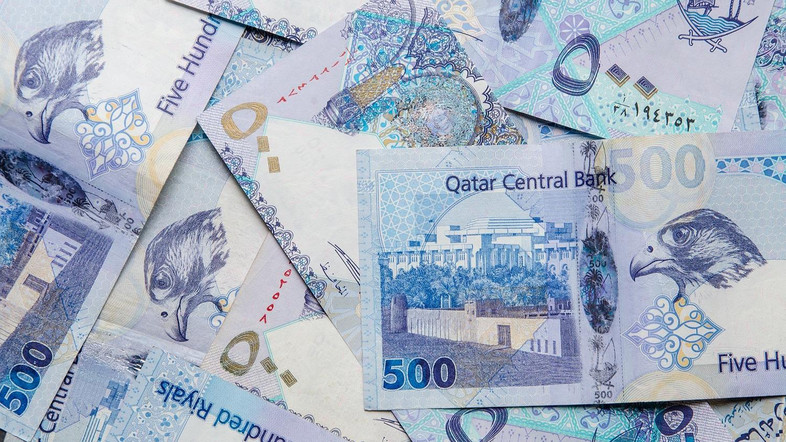
Importing & Exporting Money
Everyone holding a residence visa in Qatar is allowed to open a bank account and to import and export funds, although it’s unusual for people to bring funds into the country. Accounts held overseas are of no interest to the fiscal administrations in any of the states. No declarations of currency are required when entering any of the territories, so travellers can move currencies in and out without restriction and in any form that they choose.
International bank transfers are an area of local expertise, as handling the outflow of money has been a lucrative industry in Qatar for some years. The volume involved reflects the large number of expatriates who move to the region and who export the majority of their earnings to their home country. Many open offshore bank accounts to avoid income tax in their own countries.
Customs Rules
Import regulations:
Personal items and gifts up to a max. value of QAR 3,000
Personal Gifts
Personal luggage and gifts of value does not exceed 3,000 QR are exempted from customs duties.
Disclosure of Cash Currencies:
- In case of suspicion, customs officer shall ask travelers to disclose cash currencies or negotiable financial instruments in their possession by filling out Form (2) attached herein.
- Traveler is committed to disclose all cash currencies and negotiable financial instruments regardless of their quantity, at the request of customs officer.
- Customs offices shall keep sufficient quantities of these forms, in Arabic and English, to provide them to the traveler who asked to disclose cash currencies and negotiable financial instruments in his possession.
- If the traveler does not disclose as required in the above items, or his disclosure was false or incomplete, he will be deemed to have failed to disclose, and the officer in charge shall investigate the cause of this failure and record complete information about traveler identity and address, source of cash currencies and instruments, and purpose of its transfer. In case of suspicion of its source or if the purpose thereof is money laundering and terrorist financing, the officer shall seize these currencies and the instruments against official receipt, without prejudice to the application of the provisions of Customs Law if the act constitutes a smuggling crime or customs offence.
In all cases, General Authority of Customs shall report Financial Information Unit in Qatar Central Bank to follow up the matter.
Currency rules
Currency Import regulations:
Local currency (Qatar Riyal-QAR) and foreign currencies (other than Israeli currency): no restrictions. Prohibited: Israeli currency.
Currency Export regulations:
Local currency (Qatar Riyal-QAR) and foreign currencies (other than Israeli currency): no restrictions. Prohibited: Israeli currency.
We Advice You to Don’t Carry More Money with You…
All the retail banks will transfer money to any destination and in any currency. Many people find it convenient to use their own bank to transfer money overseas, but there are plenty of institutions offering this service, so shop around to obtain the best deal. The main variables involved in transferring funds overseas are the exchange rate offered by the different institutions and any commission charges. The rate quoted might look attractive, but if the combined charges are high, you might be better off elsewhere. At the receiving end, your own bank will undoubtedly make a charge too, depending on the amount involved. Some banks are greedier than others, and loyalty to long-standing customers seems to be a thing of the past.
Apart from banks, there are plenty of exchange companies operating in Qatar, usually owned by the major trading families, who have long experience in the business and frequently give better rates than the banks. Different transfer systems are available, and the speed of transfer is the main determinant of the charge levied. The methods are postal, bank-to-bank, telex, telegraphic and SWIFT (or similar titles). Banks and exchange houses in Qatar are generally competitive, speedy, accurate and reliable, but the efficiency of the transaction also depends on the institution involved at the receiving end. Electronic transfer is usually the quickest method, although long delays can occur if you’re sending funds in, for example, US$ to a GB£ account, and delays can also occur between different banking systems (e.g. if the banks have no reciprocal arrangement). It’s therefore simpler and quicker to send money between branches of the same bank or banks with close affiliations. You should monitor the charges being made at the various stages until the money arrives in your account and query any that you feel are unwarranted or excessive.
If you intend to send significant amounts of money abroad for business transactions, such as buying a property, ensure that you’re given the commercial rate of exchange. The tourist rate or standard rate that you see quoted in your newspaper or posted on the bank’s currency exchange board can be considerably bettered for large exchanges and transfers.
Another way to transfer money is to use a bank cheque or draft, which you can send yourself by registered mail or courier or which can be sent by bank-to-bank mail at a small additional cost. If, however, the cheque or draft is lost, stolen or goes astray for any reason, this can cause you a lot of administrative ‘hassle’. Personal cheques can be sent, although these are subject to delays in clearing. For example, a US$ personal cheque made out to a GB£ account will go from your UK bank to a New York clearing system before the funds finally return to your account, and this can take some time. It’s obviously essential to check that all the details shown on a cheque or draft are absolutely accurate.
Credit: Qatar day
URL:https://www.qatarday.com/blog/information/how-much-money-you-can-take-out-from-qatar/18392?pg=2
